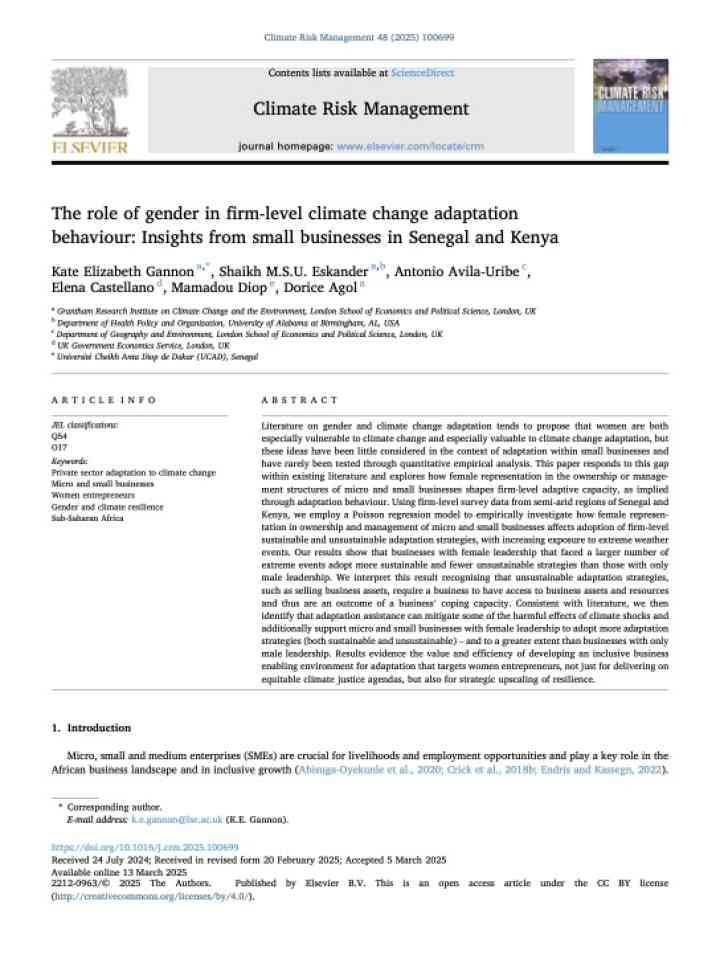The role of gender in firm-level climate change adaptation behaviour: insights from small businesses in Senegal and Kenya
The research focuses on how female representation in ownership or management of micro and small enterprises in semi-arid regions of Senegal and Kenya affects firm-level adaptive capacity. Using firm-level survey data and a Poisson regression model, the study explores how exposure to extreme weather influences the adoption of both sustainable and unsustainable adaptation strategies by female- and male-led businesses.
The results show that female-led businesses experiencing more extreme weather events are more likely to adopt sustainable and fewer unsustainable adaptation strategies than male-led ones. This suggests a different approach to adaptation under female leadership. The study also notes that unsustainable strategies, such as selling business assets, depend on access to such assets, and therefore reflect a business’s coping capacity. Importantly, the findings reveal that adaptation assistance plays a critical role: it helps mitigate the negative impacts of climate shocks and enables female-led businesses to adopt a broader range of strategies. These insights highlight the importance of developing inclusive business environments that support women entrepreneurs, not only as a matter of equity and climate justice but also as a strategy for enhancing overall resilience.
Explore further
